Top 6 Health Benefits of Swiss Chard
Dark, lush green veggies are among the highest in nutritional density. Although kale is frequently regarded as the king of greens, Swiss chard is as ... read more...outstanding in terms of nutritional value. There are several varieties of Swiss chard, some of which have brilliant, jewel-toned stems and veins that make this vegetable visually appealing. Furthermore, its leaves and stalks are high in vitamins, minerals, and strong plant chemicals. Here are the best swiss chard health advantages.
-
Swiss chard has a lot of antioxidants, which protect your body from free radicals, which can cause illnesses. Polyphenols, vitamin C, vitamin E, and carotenoid plant pigments such as beta carotene are among the numerous antioxidants found in Swiss chard. These nutrients aid in the protection of cells from free radical damage. A diet rich in the antioxidants present in Swiss chard may lower your risk of acquiring some chronic illnesses. In one study, researchers discovered that persons who consumed the most beta carotene had a considerably lower risk of lung cancer than those who consumed the least.
Swiss chard is high in flavonoid antioxidants such as quercetin, kaempferol, rutin, and vitexin. Kaempferol is a potent anti-inflammatory molecule with anticancer potential. Test-tube research, for example, discovered that kaempferol targeted pancreatic cancer cells by triggering cell death and lowering cancer cell proliferation. According to research, vitexin, another flavonoid present in Swiss chard, may help prevent heart disease by decreasing blood pressure, reducing inflammation, and preventing blood clot formation.
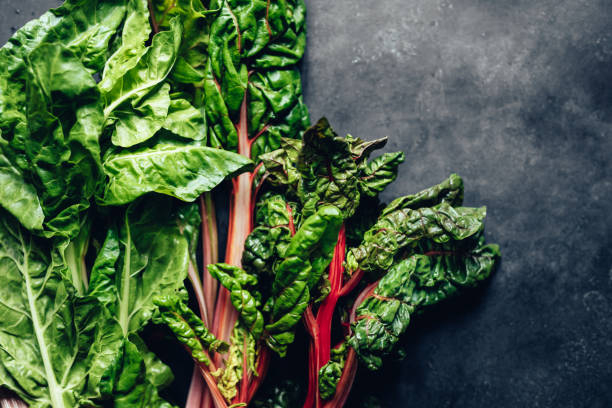
High in many antioxidants 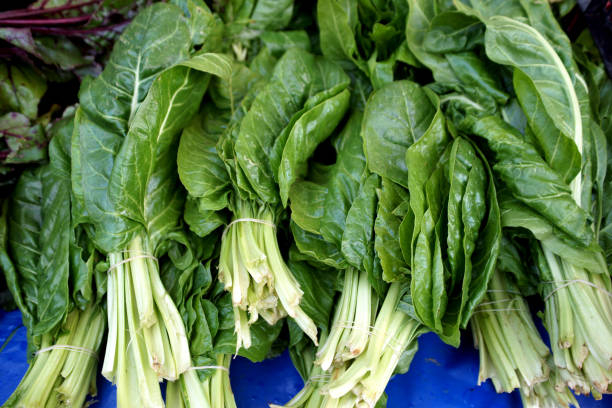
High in many antioxidants -
Fiber is an essential nutrient with several roles in your body. It feeds good gut flora, encourages regular bowel movements, aids in the maintenance of healthy cholesterol levels, and slows digestion to help balance blood sugar levels. 1 cup (175 grams) cooked Swiss chard has around 4 grams of fiber.
Adults should take at least 25-30 grams of fiber each day, according to health groups such as the American Heart Association and the American Diabetes Association. A high fiber diet has several health advantages and may be connected to a decreased risk of heart disease and some forms of cancer. Furthermore, several studies show that persons who eat high fiber diets have much lower body weight than those who eat low fiber diets.
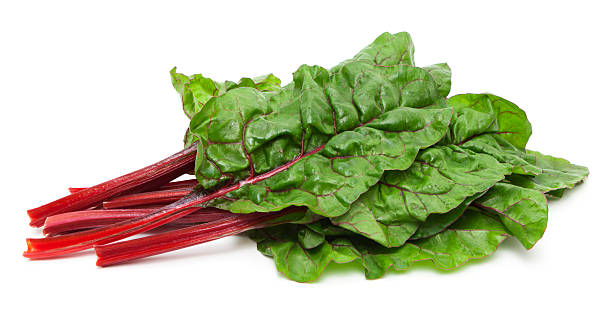
Loaded with fiber 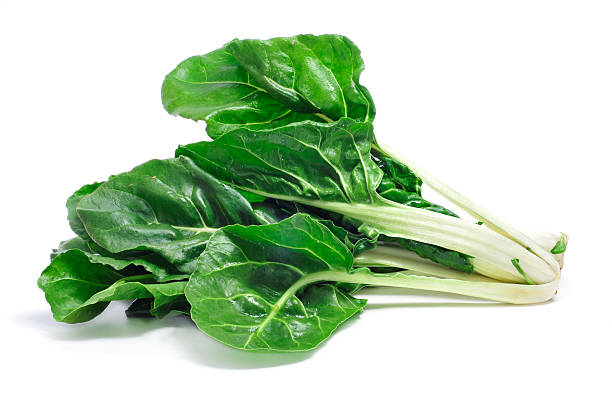
Loaded with fiber -
Vitamin K is a class of fat-soluble substances that includes vitamins K1 (phylloquinone) and K2 (menaquinone). Swiss chard has a lot of vitamin K1, which is typically found in plants. 1 cup (175 grams) cooked Swiss chard contains 477 percent of the daily value for this key vitamin. Vitamin K is involved in many important processes in your body. It is essential for blood coagulation and other biological activities, for example.
It is also necessary for bone health. In fact, it is required by your body to produce osteocalcin, a protein involved in bone development and preservation. A lack of vitamin K is linked to an increased risk of osteoporosis and fractures. People who consume a diet high in vitamin K-rich foods, on the other hand, have higher bone mineral density and reduced risks of osteoporosis.
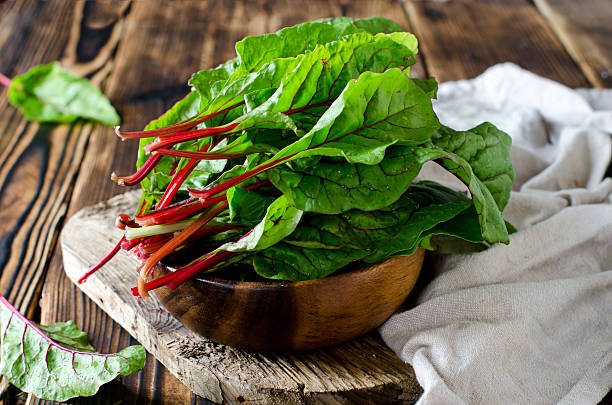
Excellent source of vitamin K 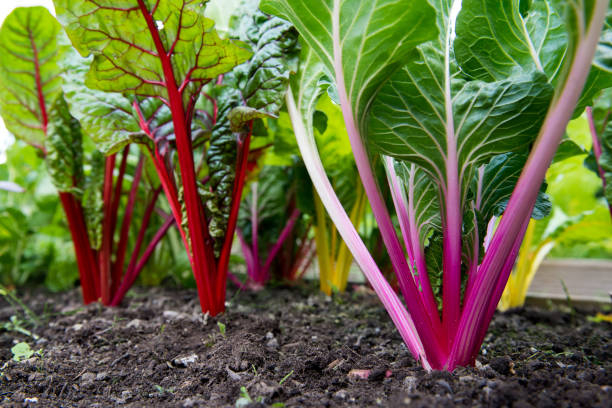
Excellent source of vitamin K -
There's no denying that eating more fresh vegetables is beneficial to your heart. A diet heavy in a variety of vegetables and fruits has been demonstrated to reduce risk factors for heart disease such as inflammation, high cholesterol, and high blood pressure. Swiss chard is high in potassium and magnesium, both of which can help keep blood pressure under control.
The fiber in Swiss chard may reduce cholesterol levels by lowering cholesterol synthesis in your liver and assisting your body in excreting excess cholesterol before it is absorbed into your bloodstream. Many big studies show that persons who eat more green leafy vegetables, such as Swiss chard, have a lower risk of heart disease. One research of over 173,000 adults found that increasing your intake of leafy green vegetables by one serving per day reduced your risk of heart disease by 11%. Furthermore, individuals who consumed the leafiest greens, such as Swiss chard, were 17 percent less likely to acquire heart disease than those who consumed the least.
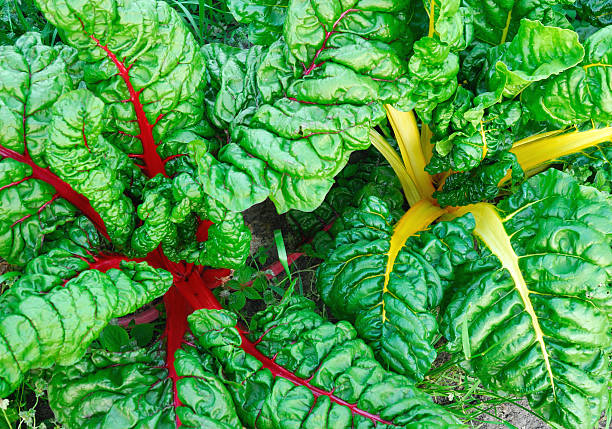
Heart health benefits 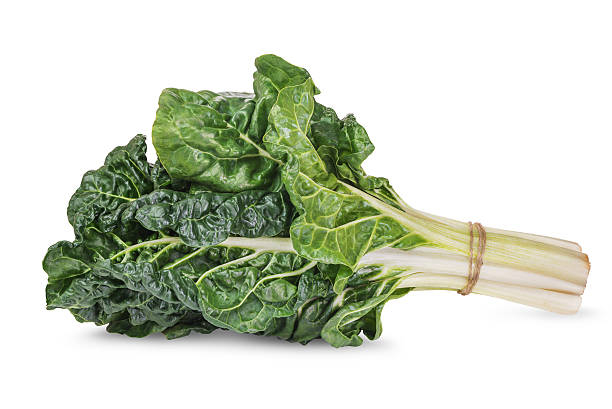
Heart health benefits -
Swiss chard has a variety of minerals, including fiber, that may help reduce blood sugar levels. Foods high in fiber assist to delay digestion. This slows the pace at which sugar is taken into your system and so aids with blood sugar stabilization. Fiber also aids in the reduction of insulin resistance, a disease in which cells cease to react to insulin.
Insulin resistance has been linked to an increased risk of type 2 diabetes, heart disease, and obesity. According to some studies, in addition to encouraging improved blood sugar management, eating more fiber-rich vegetables like Swiss chard may be associated with a decreased risk of type 2 diabetes. Furthermore, Swiss chard contains significant levels of antioxidants such as alpha-lipoic acid (ALA), which has been demonstrated to lower insulin resistance and ameliorate diabetes-related problems such as nerve damage. A meta-analysis of 23 research found that persons who ate the greenest leafy vegetables had a 13% reduced chance of acquiring type 2 diabetes than those who ate the least.
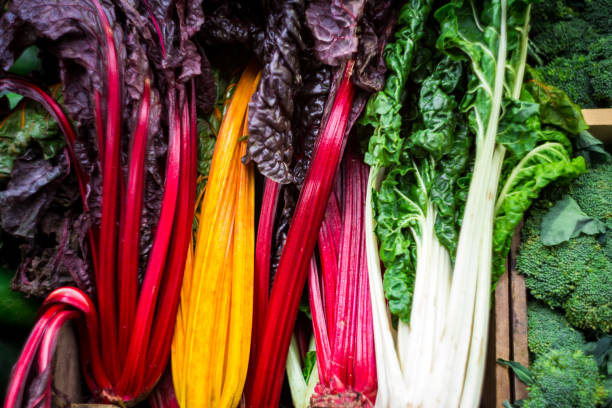
Decrease insulin resistance and blood sugar 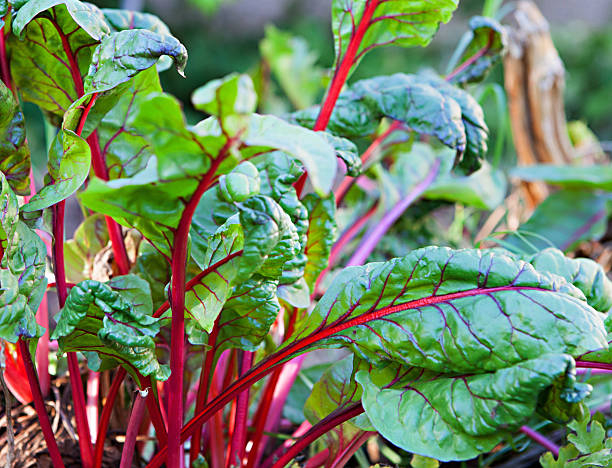
Decrease insulin resistance and blood sugar -
A balanced diet rich in nutrient-dense vegetables such as Swiss chard may help you lose weight and keep it off for good. Consuming high-fiber vegetables such as Swiss chard might boost satiety after meals, thereby lowering the risk of overeating. In a 2014 study of 120 overweight people, those who ate more veggies lost considerably more weight and satisfied their appetite.
Furthermore, persons who consume more veggies tend to weigh less than those who do not. For example, one study of 17 research involving over 560,000 people found that those who ate the most veggies were 17 percent less likely to be overweight or obese. Swiss chard has just 35 calories per cooked cup, in addition to its fiber content (175 grams). If you're aiming to maintain a healthy weight, including this low-calorie, nutrient-dense green in your diet may be advantageous.
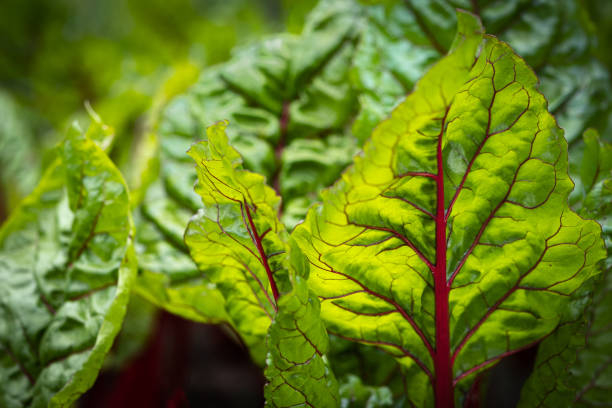
May promote weight loss 
May promote weight loss




























Quoc Ngoc 2022-07-01 18:32:23
:)))